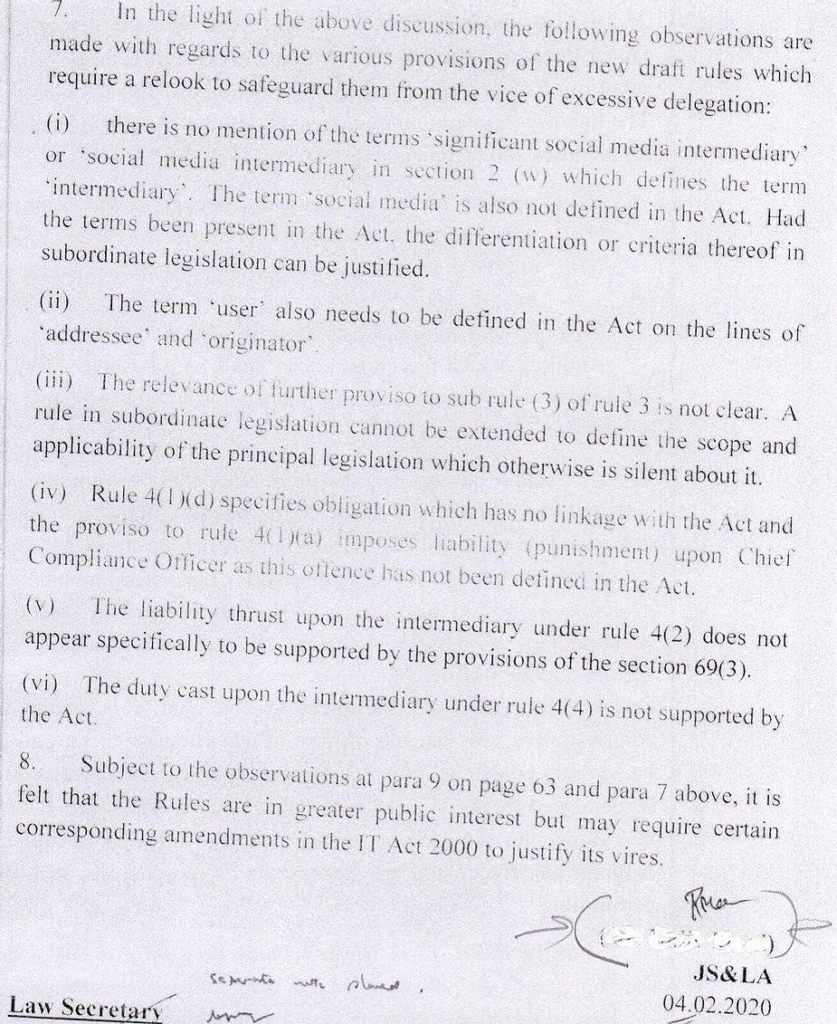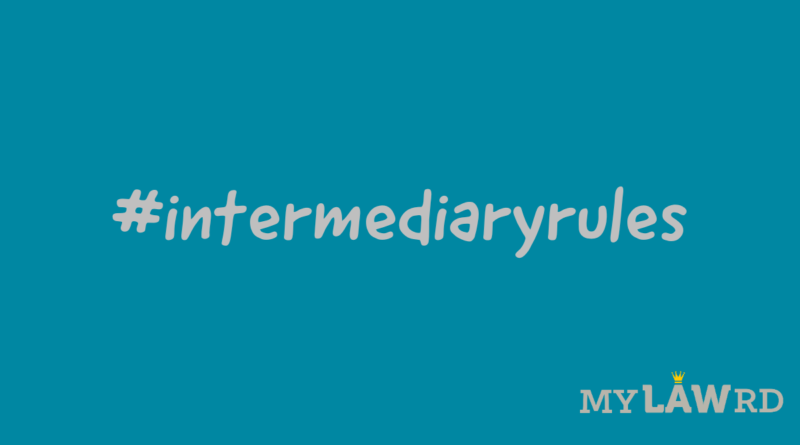Govt’s legal advisors suggested Parliamentary approval for new IT Rules
Two of the government’s own legal advisers recommended Parliamentary approval of the new Information Technology (IT) Rules. The advisors stated that the rules are beyond the scope of the law and needed legislative permission. However, Law secretary Anoop Mendiratta disregarded them and passed the rule in the “greater public good”. This report was first reported by Article 14 on Monday. Saurav Das, an independent journalist, obtained internal communication materials under the Right to Information Act to reveal this information.
Need to amend the primary legislation
In January last year, a deputy legal adviser from the Ministry of Law and Justice told the Ministry of Electronics and Information Technology (MeitY) that before promulgating the new IT Rules, it should first make “appropriate revisions” to the IT Act, 2000. The deputy legal adviser said on three occasions last year, “It may be beneficial for the administrative authorities to behave fairly to ensure the rule of law and prevent failure of justice while executing the recommended guidelines to avoid any embarrassment at a later (sic) point in time,” according to the report.
The Information Technology (Guidelines for Intermediaries and Digital Media Ethics Code) Rules, 2021, was passed on February 25, 2021, under the IT Act 2000, to govern social media firms. However, several provisions of the rules have been contested by many parties as being overbroad and beyond the jurisdiction of the parent act. As a result, the guidelines were challenged in the Delhi, Kerala, and Karnataka high courts. Later, the Supreme Court stayed the proceedings and transferred the case to itself.
A case of excessive delegation
As per the report, the new guidelines, according to the joint secretary, “provide a wide amplitude to the obligations and activities of intermediary” and “appears to extend beyond the scope of third-party information, data, or communication connection made available or hosted by him”. The joint secretary also reminded the government that the executive branch does not have the authority to make “a specific act into an offence and impose punishment for it.”
Based on this, the officer recommended the following:
- The fact that terminology like “significant social media intermediary,” “social media intermediary,” and “social media” are not defined under the IT Act. “Had the terms been included in the Act, the differentiation or conditions in subordinate legislation could have been justified,” he added.
- The term “user” in the Act should be redefined along the lines of “addressee” and “originator.”
- The Chief Compliance Officer cannot be held accountable for an intermediary’s noncompliance with the regulations. This is because such provision is absent in the parent law.
- The liability imposed on the intermediary under rule 4(2) [the message traceability clause] “does not appear to be explicitly justified by the requirements of the (sic) Section 69(3),”.
- The parent Act does not support the requirement that significant social media intermediaries allow users to verify their accounts and present them with a visible mark of verification.

Two weeks after issuing the notice, the IT ministry added a preamble to the rules and the joint secretary accepted the guidelines without additional comments. “The preamble to the Rules takes care of most of the issues voiced earlier,” the joint secretary added. “It is justifiable to have the same being in the broad and wider public interest.”
The constitutional validity of the rules is yet to be ascertained upon by the Supreme Court.
Do subscribe to our Telegram channel for more resources and discussions on technology law and news. To receive weekly updates don’t forget to subscribe to our Newsletter.
You can also follow us on Instagram, Facebook, LinkedIn, and Twitter for frequent updates and news flashes about #technologylaw.

